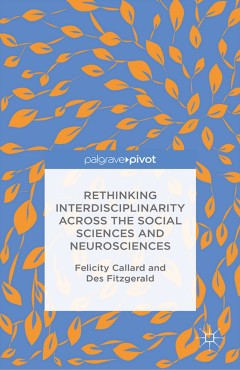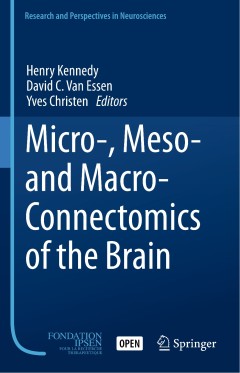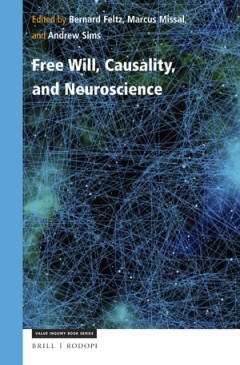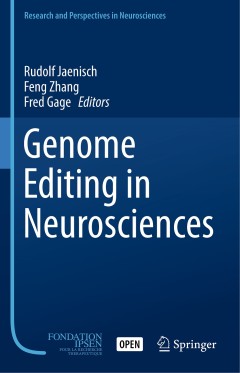Filter by

Rethinking interdisciplinarity across the social sciences and neurosciences
This book offers a provocative account of interdisciplinary research across the neurosciences, social sciences and humanities. Setting itself against standard accounts of interdisciplinary 'integration,' and rooting itself in the authors' own experiences, the book establishes a radical agenda for collaboration across these disciplines. Rethinking Interdisciplinarity does not merely advocate int…
- Edition
- -
- ISBN/ISSN
- 9781137407962
- Collation
- x, 157p. : ill.
- Series Title
- -
- Call Number
- 001 CAL r

Micro-, meso- and macro-connectomics of the brain
This book has brought together leading investigators who work in the new arena of brain connectomics. This includes ‘macro-connectome’ efforts to comprehensively chart long-distance pathways and functional networks; ‘micro-connectome’ efforts to identify every neuron, axon, dendrite, synapse, and glial process within restricted brain regions; and ‘meso-connectome’ efforts to systema…
- Edition
- -
- ISBN/ISSN
- 9783319277776
- Collation
- x, 166p. : ill.
- Series Title
- -
- Call Number
- 612.825 MIC m

A time for metabolism and hormones
Recent years have seen spectacular advances in the field of circadian biology. These have attracted the interest of researchers in many fields, including endocrinology, neurosciences, cancer, and behavior. By integrating a circadian view within the fields of endocrinology and metabolism, researchers will be able to reveal many, yet-unsuspected aspects of how organisms cope with changes in the e…
- Edition
- -
- ISBN/ISSN
- 9783319270692
- Collation
- xiii, 132p. : ill.
- Series Title
- -
- Call Number
- 612.022 TIM t

Free will, causality, and neuroscience
Neuroscientists often consider free will to be an illusion. Contrary to this hypothesis, the contributions to this volume show that recent developments in neuroscience can also support the existence of free will. Firstly, the possibility of intentional consciousness is studied. Secondly, Libet’s experiments are discussed from this new perspective. Thirdly, the relationship between free will, …
- Edition
- -
- ISBN/ISSN
- 9789004409965
- Collation
- viii, 184p. : ill.
- Series Title
- -
- Call Number
- 123.5 FRE f

Genome editing in neurosciences
Innovations in molecular biology are allowing neuroscientists to study the brain with unprecedented resolution, from the level of single molecules to integrated gene circuits. Chief among these innovations is the CRISPR-Cas genome editing technology, which has the precision and scalability to tackle the complexity of the brain. This Colloque Médecine et Recherche has brought together experts f…
- Edition
- -
- ISBN/ISSN
- 9783319601922
- Collation
- xi, 123p. : ill.
- Series Title
- -
- Call Number
- 572.8 GEN g
 Computer Science, Information & General Works
Computer Science, Information & General Works  Philosophy & Psychology
Philosophy & Psychology  Religion
Religion  Social Sciences
Social Sciences  Language
Language  Pure Science
Pure Science  Applied Sciences
Applied Sciences  Art & Recreation
Art & Recreation  Literature
Literature  History & Geography
History & Geography